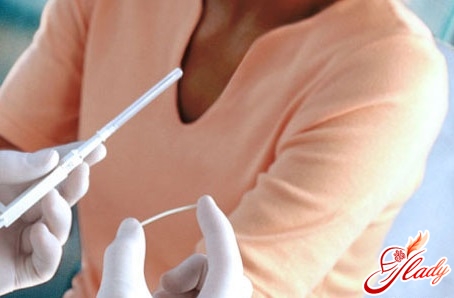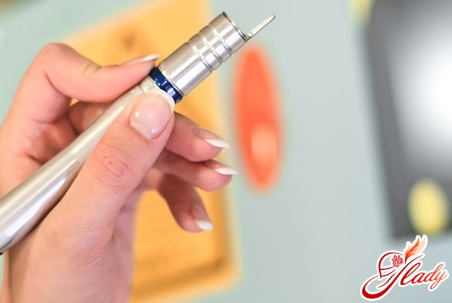
Very many women sooner or laterare faced with a situation where it is not possible to use a regular method of contraception to prevent pregnancy or the means of protection have proven to be ineffective. What to do in such cases? In order to avoid unwanted pregnancy, there is such a type of contraception as emergency contraception. This type of protection will help to avoid only unwanted pregnancy, but it cannot protect against sexually transmitted diseases. Emergency, or postcoital contraception is primarily intended to prevent pregnancy as a result of unprotected intercourse and includes various methods and drugs. The essence of this contraception is to prevent the fertilized egg from attaching to the wall of the uterus and starting to develop. When using this contraception, a kind of small miscarriage occurs in the female body. The effectiveness of this method directly depends on the time of taking the drug after the "dangerous" sexual intercourse: the earlier it is taken, the higher its effectiveness.
Cases in which emergency contraception is needed
The main reason for taking these drugsis unprotected sexual intercourse. Despite the huge prevalence of various methods of contraception, some couples forget about it. At the most crucial moment, there is no condom at hand or it simply breaks in the process. Should you panic in this case? First, you need to try to calculate what day of the menstrual cycle it is. After all, emergency contraception is not very safe, and the pills taken can lead to very unpleasant consequences. That is, if you had unprotected sex in the first or last 7-8 days of the cycle (if it is regular, and its duration is 28-30 days), then most likely you should not take the pills, since ovulation (the period when pregnancy is more likely) occurs in the middle of the cycle. Another question that interests many women: can emergency contraception be used during a planned one? For example, in the first 14 days of the first cycle of oral contraceptives, should other methods of contraception be used, since the main method has not yet begun to work, or if oral contraceptives were taken in parallel with antibiotics or other drugs that have the property of reducing the effect of the main drug. In these cases, emergency drugs should not be taken. Only non-hormonal contraception can be used additionally. Spermicides (if, for example, the suppository was inserted into the vagina after or immediately before intercourse, without waiting the required time for its activation) or condoms have a completely different effect. Is emergency contraception necessary if a woman is breastfeeding? Of course, it is better to avoid such situations, but in emergency cases, you can use emergency contraception. To do this, you need to postpone breastfeeding for one day, until the drug taken is completely eliminated from the body.
Emergency contraception: types
Combined oral contraceptives.These medications are taken no later than 3 days after sexual intercourse. Ethinyl estradiol-based medications (Marvelon, Miniziston, Microgenon, Femoden, Rigevidon) are usually taken several times. Ethinyl estradiol-based medications (Non-ovlon, Bisecurin, Ovulen, Ovidon, Anovlar) should also be taken several times with a 12-hour interval between doses to achieve the effect. Pure progestin oral contraceptives. These medications are taken no later than 2 days after sexual intercourse. Mifepristone. This medication is not hormonal. Its action is aimed at suppressing the female hormone at the receptor level in the uterus and increasing the contraction of its muscles. Mifepristone is currently the most effective means of emergency contraception. It blocks the egg so that it cannot enter the uterine mucosa and also stimulates its rejection. This drug is used to terminate an unwanted pregnancy in the early stages. Mifepristone can only be used after consulting a doctor. Intrauterine devices. These devices are a very effective emergency contraception. T-shaped copper-containing intrauterine devices are inserted no later than 5 days after sexual intercourse in the gynecologist's office. If a woman is prescribed an intrauterine device as an emergency contraception, then her individual characteristics and contraindications to the use of this method are necessarily taken into account. Intrauterine contraceptives can only be used to prevent pregnancy in women who have not given birth. This method is indicated for women with any infectious diseases of a gynecological nature, and for those who are at risk of contracting sexually transmitted diseases.
Influence of emergency contraception on the body
Doctors do not recommend using this typecontraception constantly, as this has a negative effect on the reproductive system of a woman, which can subsequently lead to a functional disorder of the ovaries. For example, taking purely progestin or combined contraceptives daily, a woman's body receives small doses of the drug, calculated for the entire menstrual cycle. Thus, taking a hormonal drug does not disrupt the duration of the cycle and its normal cyclicity, thanks to it, the functions of the ovaries only improve. In addition, various hormonal imbalances that a woman has are eliminated. If a woman takes the same drug for emergency contraception, the body receives a dose of the hormonal drug that is many times higher, regardless of the phase of her menstrual cycle. As a result of the constant use of such contraception, the menstrual cycle will become anovulatory (without the formation of an egg), which threatens infertility. Disruption of the normal functions of the ovaries gives impetus to the development of metabolic disorder syndrome, which is expressed in an increase in blood sugar, an increase in blood pressure, and the appearance of excess weight. As for douching with various solutions, it is safe to say that this method does not have the desired effect, since spermatozoa penetrate the cervix within 1 minute after intercourse. In addition, too frequent douching can lead to vaginal dryness due to disruption of the microflora.
How Emergency Contraceptive Drugs Work
Large doses of combined orPure progestin oral contraceptives taken in the first phase of a normal menstrual cycle disrupt the maturation process of the follicle, which directs its development in the opposite direction. A single dose of such drugs, regardless of the cycle phase, disrupts the formation of the endometrium and its rejection. These contraceptives are aimed at hormonal disruption of the ovaries. Thus, emergency contraception is aimed at suppressing ovulation, disrupting the normal fertilization process. Mifepristone blocks the action of progesterone and increases the contractility of the uterus, which contributes to the rejection of the endometrium. The action of the spiral causes the effect of a foreign body in the uterus, due to which the endometrium accumulates protective cells of the body, which have a detrimental effect on the egg. The number of prostaglandins increases, contributing to an increase in the contractility of the uterus, due to which the implantation of the egg is blocked. The contraction of the fallopian tubes is significantly increased, due to which the already fertilized egg moves into the uterus much earlier and cannot attach there. This method of emergency contraception has been used for decades, which proves its effectiveness.
Disadvantages of emergency contraception
Emergency contraception is completelyare useless during the process of attachment of the egg to the uterus. The effectiveness of combined oral contraceptives can only be observed if the drug is taken within 72 hours after intercourse. The first dose of purely progestin oral contraceptives should be taken no later than 48 hours after intercourse. The effectiveness of intrauterine contraception can be observed if these devices are inserted into the uterus within 5 days after intercourse. The drug Mifepristone should only be taken in a clinic under the supervision of a doctor. Another disadvantage of Mifepristone is its high price.
Side effects
Emergency contraception should only be usedin force majeure situations, if there is simply no other way out. It is desirable if it is used no more than 3 times a year. The less often, the better. The most common side effect of taking urgent oral contraceptives is uterine bleeding, which occurs 2-3 days after taking them. And some women, on the contrary, have delays in menstruation with a strong violation of the menstrual cycle. Other side effects, such as dizziness, headaches, vomiting and diarrhea, various allergic reactions are rare. When using Mifipristone, discomfort in the lower abdomen, vomiting, nausea, weakness, dizziness often occur, and body temperature rises noticeably. When using intrauterine contraceptives, severe cramping pains in the lower abdomen, an increase in the amount and duration of menstrual discharge may be observed during the first few days, in addition, there is a high risk of an ectopic pregnancy due to a violation of the contraction of the fallopian tubes and the movement of the egg through the tubes. Less frequently, spontaneous prolapse of the intrauterine device and damage to the uterus during its insertion may occur.
Advice for women using oral contraceptives for emergency contraception
Contraindications for emergency contraception
- high sensitivity to any component of the drug;
- previously suffered hepatitis;
- diseases of the bile duct or liver in severe form;
- the period of puberty;
- the coming pregnancy.
Therefore, any medication should be taken under the supervision of a physician.









